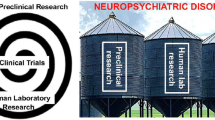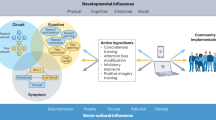Abstract
In the 36 years since its founding, the Brain and Behavior Research Foundation (BBRF) has become one of the world’s largest non-government funders of grants for neuropsychiatric research. A number of lessons can be drawn from the BBRF experience. One is that scientific competence in the organization, and full control over selection of grantees, has always resided in a Scientific Council composed of leaders in the field. Fund-raising has been conducted separately, and all public dollars contributed have been used to fund grants. The Council has sought to support the best research, no matter who is doing it or where it is being done. Over 80% of 6300 grants awarded have jump-started the careers of young investigators judged to demonstrate unusual promise. These early-career grants have been the equivalent of seed funding, enabling the best and brightest entrants to the field to perform research that, if successful, can provide a basis for much larger, career-sustaining grants. Much of the funded research has been basic research, although many contributions leading to clinical advances have also resulted from BBRF grants. BBRF has learned that it pays to have a diversified research portfolio, with thousands of grantees attacking the problem of mental illness from many different angles. The Foundation’s experience also demonstrates the power of patient-inspired philanthropic support. Donors repeatedly express satisfaction that some aspect of mental illness that they care deeply about is being addressed, and find comfort and support from the sense of joining with others in the mission.
This is a preview of subscription content, access via your institution
Access options
Subscribe to this journal
Receive 13 print issues and online access
$259.00 per year
only $19.92 per issue
Buy this article
- Purchase on Springer Link
- Instant access to full article PDF
Prices may be subject to local taxes which are calculated during checkout
Similar content being viewed by others
References
Brain & Behavior Research Foundation. “The Impact of BBRF Grants,” (New York: BBRF, 2019).
Pardes H. Citizens: A New Ally for Research. Hospital Community Psychiatry. 1986;37:1193. MD12 (Dec.), p“For every American with cancer, $300 was spent annually on research in 1986. The comparable figure for people with schizophrenia was a mere $7.”
Pardes H. Response to the Presidential Address: The Research Alliance—Road to Clinical Excellence. Am J Psychiatry. 1989;146:1108.
Pardes H. “Advocacy for the Mentally Ill”. In: Joan H. Marks, editor. Advocacy In Health Care. Clifton, New Jersey: Humana Press; 1986. p. 104.
Tarr PJ. Dr. Pardes narrates this story in “Herbert Pardes, M.D.: An Appreciation,” (Great Neck, N.Y.: NARSAD, 2007), pp. 17–18.
As of November 2022, 5,132 of 6,386 BBRF grants awarded (80.3%) were Young Investigator awards.
Brain & Behavior Research Foundation. “The Impact of BBRF Grants,” (New York: BBRF, 2019).
Myrna Weissman, Ph.D., quoted in Judith N. Schwartz, “How environment and biology combine to produce depression in high-risk populations,” Breakthroughs 2: Spring 2010 (New York: BBRF), p. 13.
Deisseroth K, MD, Ph.D., in Pathways to the Future: Thoughts & Insights From Foundation Outstanding Achievement Prize Winners, (New York: BBRF, 2017), pp. 37–8.
George MS, M.D., personal communications, November 2022.
Mayberg HS, M.D., in Brain and Behavior Magazine, August 2020, p. 15.
Pardes H, Lieber CE. “Philanthropy for Psychiatry,” Am J Psychiatry. 163;5:766-7.
Author information
Authors and Affiliations
Contributions
This article was conceived by JB and GAS; drafted by PJT; and edited by PJT, JB and GAS.
Corresponding author
Ethics declarations
Competing interests
JB and PJT are employed by the Brain & Behavior Research Foundation. GAS receives no compensation as BBRF Board Chairman.
Additional information
Publisher’s note Springer Nature remains neutral with regard to jurisdictional claims in published maps and institutional affiliations.
Rights and permissions
Springer Nature or its licensor (e.g. a society or other partner) holds exclusive rights to this article under a publishing agreement with the author(s) or other rightsholder(s); author self-archiving of the accepted manuscript version of this article is solely governed by the terms of such publishing agreement and applicable law.
About this article
Cite this article
Borenstein, J., Simon, G.A. & Tarr, P.J. The Brain & Behavior Research Foundation’s philanthropic support for neuropsychiatric research. Neuropsychopharmacol. 49, 15–17 (2024). https://doi.org/10.1038/s41386-023-01595-3
Received:
Revised:
Accepted:
Published:
Issue Date:
DOI: https://doi.org/10.1038/s41386-023-01595-3



